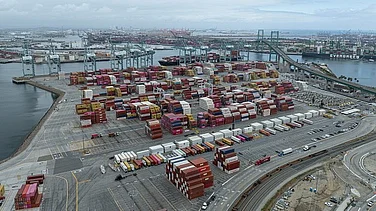The Indian Railways plans to distribute 4G connections along-with handsets to all of the 13.5 lakh employees on rolls, but the staff of the Colonial-era transporter is not interested in having these.
Indeed, the proposal has set the cat among the pigeons, with the Unions having red flagged the plan on grounds that the top management of the 165-year old state-owned transporter was attempting to “foist a 24X7 surveillance system on employees through technological tools”. .
“Through the use of technology, the top rail management wants to set up a watchman to monitor the work of the field staff. This will be hurtful to the pride of the dedicated rail staff. They are not cattle that can be cultivated, trained or motivated. We will not accept this plan”, said M Raghuviah of the National Federation of Indian Railway Men (NFIR). Shiv Gopal Mishra of the All India Railway Men Federation (AIRF) echoed similar sentiments: “Where is the need for such things? The money (on purchase of 4G phones) can be better spent on more pressing needs such as the purchase of modern devices to detect track flaws”.
Official view is the 4G smart phones would enhance operational efficiency and safety preparedness, as field operatives such as trackmen would have the technological tools to alert and update superiors on track defects on a real-time basis. These phones, according to news reports, are to be enabled with the biometric “Aadhar” authentication to provide for security and integrity of access of the user employees.
Different verticals with their respective areas of service would have special app-based platforms to complement their work, while the ground staff would be provided the access to official applications based on the camera feature to communicate information, the reports said.
In the last decade and a half, the Indian Railways have had a contract with Airtel for a Closed User Group (CUG) connection but, after the expiry of the contract term this year, the transporter has started exploring options from other mobile operators. So far, the Railways have been spending approximately Rs. 180 crore annually on official mobile bills, but costs are likely to increase multiple times, as the transporter – for the first time – is proposing to provide both the Sims and handsets to all and not just a select section of employees. The company that wins this fat railway contract will, apparently, benefit hugely.
Chairman Railway Board (CRB) Ashwani Lohani is said to be keen on the idea; having shot off a letter to the Finance Secretary seeking special permission to implement the plan. According to existing guidelines, only senior officials are entitled for handsets, while connections are given to all the employees.
Sanjay Pandhi of the All India Loco Running Men Organization (IRLRO) suspects a “corporate conspiracy”, saying that the 4G plan “makes little sense”. “The Railways have an In-house telecommunications organization called the Indian Railways Central Organization for Telecom (IRCOT), which has laid the Optical Fiber network across the entire network. This task could well have been given to the IRCOT”, he said.
There are, however, counter arguments to Pandhi’s views. At a time when mobile telephony in India has been getting cheaper on account of the cut-throat competition between private players, the idea that the railways should own and manage their own telephony exchanges does not sound attractive. In past decades, huge sums have been invested by the Railways in setting up exchanges and towards maintaining a supplier base and on the upkeep of its Signalling and Telecommunicatons staff posted at these locations. “Outsourcing the communications contract to a private party should be fine, so long as this does not compromise on data security. Dependability of service is another issue that needs to be ascertained. The IRCOT should be asked to look into such matters”, former Railway Board member Subodh Jain said.
Indian Railways Offers To Provide 4G Handsets To All Employees, Staff Says 'No Thanks'
Unions have red flagged the plan on grounds that the top management was attempting to “foist a 24X7 surveillance system on employees through technological tools”. .
Published At:

Indian Railways Offers To Provide 4G Handsets To All Employees, Staff Says 'No Thanks'
Indian Railways Offers To Provide 4G Handsets To All Employees, Staff Says 'No Thanks'
- Previous Story
 Telangana Sets Up 24×7 Control Room in Delhi to Assist Residents in Crisis-Hit West Asia
Telangana Sets Up 24×7 Control Room in Delhi to Assist Residents in Crisis-Hit West Asia - Next Story
WATCH
MORE FROM THE AUTHOR
PHOTOS
×














